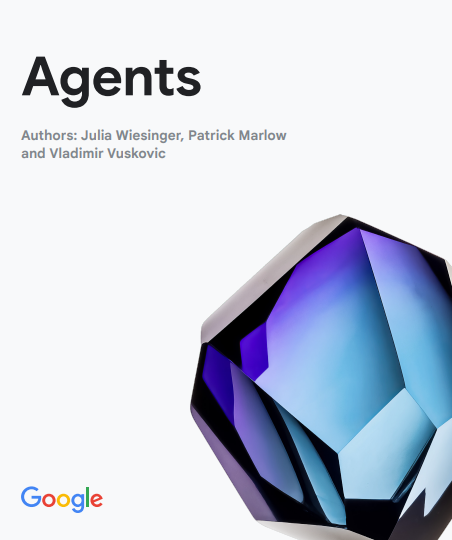Google recently released a detailed white paper that explores the development and capabilities of generative AI agents. This document explains how these intelligent agents utilize external tools to go beyond the capabilities of traditional language models and accomplish more complex tasks.
In the white paper, generative AI agents are defined as applications designed to achieve specific goals by observing their environment and taking corresponding actions. A notable characteristic of these agents is their autonomy, allowing them to operate independently of human intervention under clear goal guidance.

The white paper states: "Agents extend the capabilities of language models by utilizing tools, allowing access to real-time information, suggesting actions in the real world, and being able to independently plan and execute complex tasks." This indicates that the application potential of generative AI agents is immense.
The document outlines the key components of the agent architecture, including a cognitive framework for structured reasoning, planning, and decision-making processes. Among these, the orchestration layer plays a crucial role, guiding the agents in a cyclical process between information input and action execution.
Additionally, the white paper discusses the importance of tools, such as extensions and functionalities, which enable agents to interact with external systems. These tools allow agents to perform tasks like updating databases or retrieving real-time data. "Tools bridge the internal capabilities of agents with the external world," the authors state, providing examples of how agents enhance their functionalities using various APIs.
The white paper also emphasizes the role of data storage, which provides agents with access to dynamic information, ensuring the relevance and accuracy of responses. This capability is particularly important as it allows agents to adapt to an ever-changing information environment.
The document also showcases various use cases for generative AI agents, such as an agent that can dynamically collect necessary information to assist users in booking flights through interactions with multiple APIs.
Furthermore, Google describes how developers can utilize these agents in applications like Vertex AI. This platform offers a management environment where developers can define goals, task descriptions, and examples to efficiently build the desired system behaviors.
Sam Altman, CEO of OpenAI, recently published a blog mentioning that AI agents could enter the workforce by 2025. He stated, "We believe that by 2025, we may see the first AI agents join the workforce, significantly changing the output of companies."
Key Points:
🌟 Generative AI agents are intelligent applications capable of autonomously executing complex tasks to achieve specific goals through observation and action.
🔧 Agents interact with external tools and systems to obtain real-time information and enhance their functionalities.
📅 OpenAI's Sam Altman predicts that AI agents may enter the workforce by 2025, transforming business operations.
